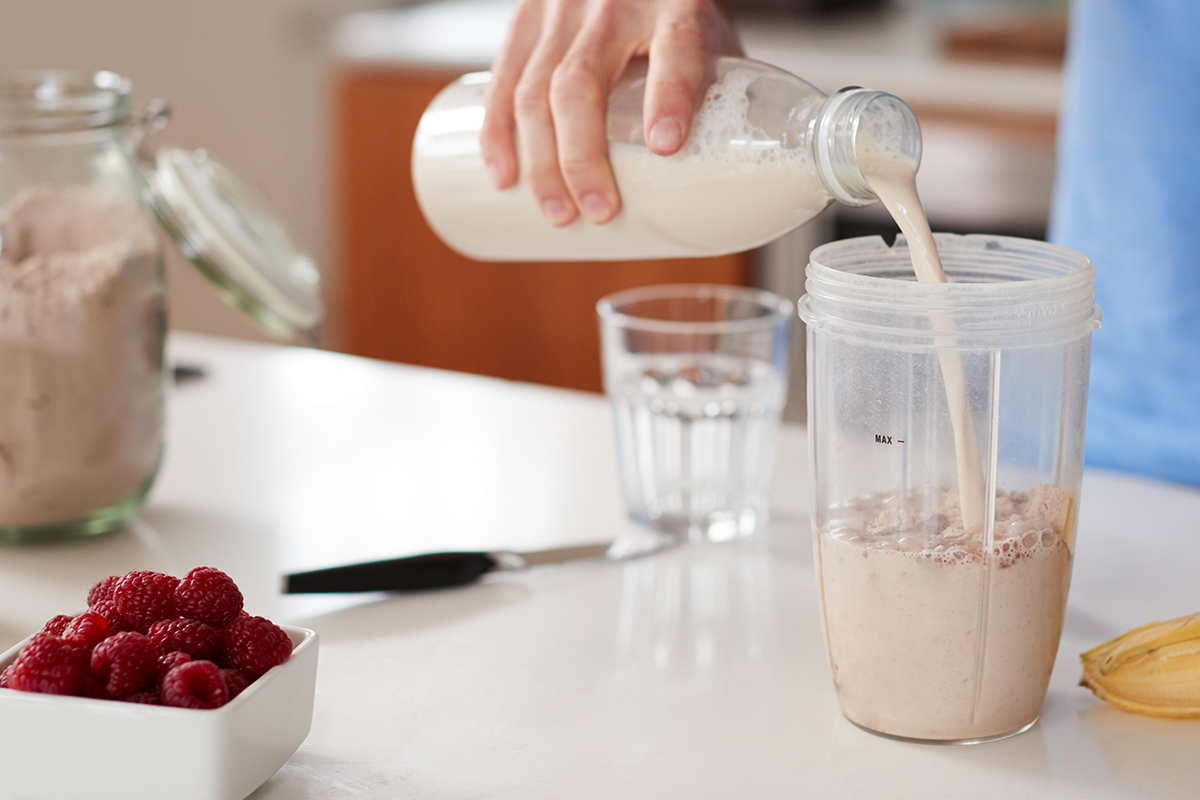
Question:
Hello LA Fitness! It seems a lot of people are mentioning Chronic Kidney Disease. I hear that this can be from a number of reasons, including consuming too much protein. If you’re on a renal diet, or have kidney disease, or want to avoid getting CKD, how much protein is too much?
– Darque O.

Answer:
Whether you need to restrict protein or not should be determined by your nephrologist, depending on the stage of your renal disease. Note that the National Kidney Foundation (NKF) states “Low protein and calorie intake is an important cause of malnutrition in chronic kidney disease1” and “There is insufficient evidence to recommend for or against routine prescription of dietary protein restriction to slow progression of chronic kidney disease.1”
The Centers for Disease Control and Prevention indicate that protein in the urine is a risk factor for developing kidney disease2. While one might assume that dietary protein load is the culprit, it’s more likely from impaired kidney filtration due to diabetes. The CDC recommends two dietary improvements: eating more fruits and vegetables while eating foods lower in salt2.
According to the National Institute of Diabetes and Digestive and Kidney Diseases, preventing diabetes and high blood pressure helps to protect your kidneys from chronic kidney disease (CKD)3. The organization advises cutting back on salt and added sugars and suggests a DASH eating plan3. Protein is not mentioned.
References:
1) National Kidney Foundation. K/DOQI clinical practice guidelines for chronic kidney disease: evaluation, classification, and stratification. American Journal of Kidney Diseases. 2002; 39(2 suppl 1):S1–266. https://www.kidney.org/sites/default/files/docs/ckd_evaluation_classification_stratification.pdf Accessed 9.3.2019
2) Prevention and Risk Management. Centers for Disease Control and Prevention. https://www.cdc.gov/kidneydisease/prevention-risk.html December 21, 2017. Accessed 9.3.2019
3) Preventing Chronic Kidney Disease. National Institute of Diabetes and Digestive and Kidney Diseases. https://www.niddk.nih.gov/health-information/kidney-disease/chronic-kidney-disease-ckd/prevention October 2016. Accessed 9.3.2019
– Debbie J., MS, RD
This article should not replace any exercise program or restrictions, any dietary supplements or restrictions, or any other medical recommendations from your primary care physician. Before starting any exercise program or diet, make sure it is approved by your doctor.
Some questions have been edited for length and/or clarity.
Ask our Dietitian
 Have a nutrition question? Our registered dietitian is ready to help!
Have a nutrition question? Our registered dietitian is ready to help!
Email nutrition@lafitness.com or submit your question below and it may be featured in an upcoming article!
Recommended Reading - Q+A
Nutritious Green Foods You Didn’t Know About
Good nutrition is all about variety! Browse through our list of unusual fruits and veggies and give yourself a chance to try something new.
Salt Grains for Muscle Gains?
Does liberally salting your food help you pump more iron in the gym? Registered Dietitian, Debbie James, investigates the claims!
How Much Protein Does Your Body Need?
One frequently asked question is about the recommended intake of protein. We hear you! Here is everything you need to know.



